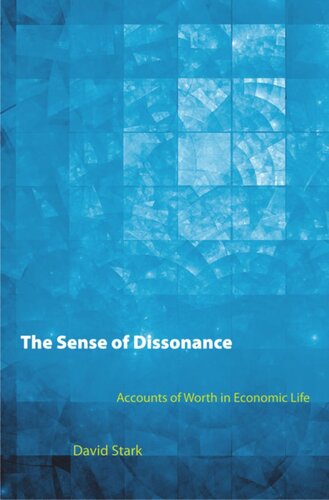

Most ebook files are in PDF format, so you can easily read them using various software such as Foxit Reader or directly on the Google Chrome browser.
Some ebook files are released by publishers in other formats such as .awz, .mobi, .epub, .fb2, etc. You may need to install specific software to read these formats on mobile/PC, such as Calibre.
Please read the tutorial at this link: https://ebookbell.com/faq
We offer FREE conversion to the popular formats you request; however, this may take some time. Therefore, right after payment, please email us, and we will try to provide the service as quickly as possible.
For some exceptional file formats or broken links (if any), please refrain from opening any disputes. Instead, email us first, and we will try to assist within a maximum of 6 hours.
EbookBell Team

4.0
6 reviewsWhat counts? In work, as in other areas of life, it is not always clear what standards we are being judged by or how our worth is being determined. This can be disorienting and disconcerting. Because of this, many organizations devote considerable resources to limiting and clarifying the logics used for evaluating worth. But as David Stark argues, firms would often be better off, especially in managing change, if they allowed multiple logics of worth and did not necessarily discourage uncertainty. In fact, in many cases multiple orders of worth are unavoidable, so organizations and firms should learn to harness the benefits of such "heterarchy" rather than seeking to purge it. Stark makes this argument with ethnographic case studies of three companies attempting to cope with rapid change: a machine-tool company in late and postcommunist Hungary, a new-media startup in New York during and after the collapse of the Internet bubble, and a Wall Street investment bank whose trading room was destroyed on 9/11. In each case, the friction of competing criteria of worth promoted an organizational reflexivity that made it easier for the company to change and deal with market uncertainty. Drawing on John Dewey's notion that "perplexing situations" provide opportunities for innovative inquiry, Stark argues that the dissonance of diverse principles can lead to discovery.